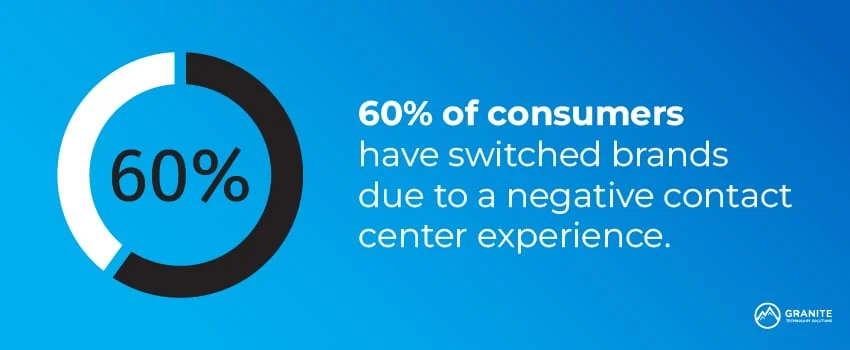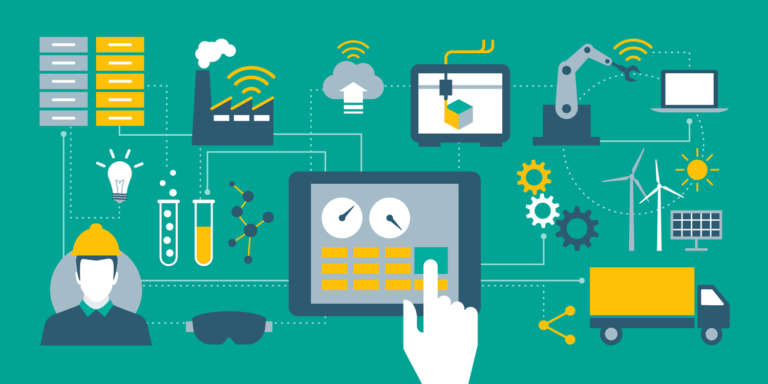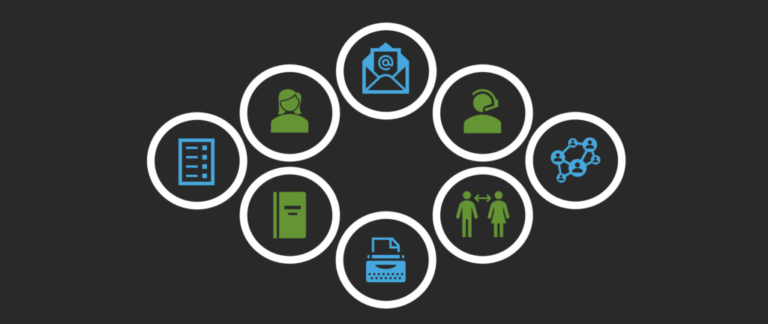Personalization at Scale: How CCaaS is Revolutionizing Customer Engagement
In a world where customer experience is a key differentiator, personalized service is no longer a luxury; it’s an expectation. Businesses need to deliver personalized interactions that cater to individual needs, preferences, and behaviors—on a large scale. This is where Contact Center as a Service (CCaaS) comes in, empowering companies to seamlessly personalize each customer touchpoint using data integration, real-time analytics, and CRM connectivity. Let’s explore how CCaaS enables personalization at scale, driving deeper customer engagement and loyalty.
1. Data Integration: Creating a Holistic View of the Customer
The foundation of personalized service lies in understanding the customer, and this starts with comprehensive data integration. CCaaS platforms allow companies to bring together data from multiple sources—such as CRM systems, support tickets, social media interactions, and purchase history—creating a 360-degree view of each customer.
- Unified Customer Profiles: CCaaS platforms pull data from various sources to build a unified profile that includes past purchases, previous interactions, preferences, and more. Agents have instant access to this information, allowing them to tailor interactions based on the customer’s history and needs.
- Contextual Insights: With access to a wealth of data, agents can provide more relevant solutions. For example, if a customer recently contacted support about an issue, the agent can acknowledge this in future interactions, showing empathy and awareness.
- Personalized Recommendations: The unified data also enables personalized recommendations, such as product suggestions based on past purchases or reminders for upcoming renewals.
Why It Matters: Integrated data creates a seamless, personalized experience by enabling agents to understand the customer’s journey and anticipate their needs. This builds customer trust and loyalty by showing that the company values their individual preferences.
2. Real-Time Analytics: Tailoring Interactions on the Fly
Real-time analytics are crucial for effective personalization, allowing contact centers to adapt interactions as they happen. CCaaS platforms analyze data instantly, providing agents with insights that enable them to personalize conversations in real-time.
- Sentiment Analysis: Many CCaaS platforms use AI-driven sentiment analysis to gauge a customer’s mood based on their language and tone. If a customer seems frustrated, the platform can alert the agent, who can then adjust their approach to be more empathetic and solution-focused.
- Proactive Support: Real-time analytics can detect patterns that indicate when a customer may need assistance, such as browsing certain sections of a website or hesitating at a checkout page. Agents can proactively reach out with relevant support, creating a smoother, more personalized experience.
- Intelligent Routing: Real-time data allows CCaaS platforms to route customers to the most appropriate agent based on their needs, preferences, and interaction history. For example, high-value customers can be prioritized and connected with senior agents who have the authority to offer tailored solutions.
Why It Matters: Real-time analytics provide agents with actionable insights during interactions, enabling them to respond to customer needs instantly. This level of personalization can significantly improve customer satisfaction and retention by making each experience feel relevant and timely.
3. CRM Connections: Aligning Sales, Marketing, and Customer Service
A major advantage of CCaaS is its seamless integration with CRM systems, which creates a bridge between customer service, sales, and marketing departments. This alignment allows for consistent personalization across the entire customer journey.
- Seamless Information Flow: With CRM integration, agents can view all interactions the customer has had with the company, from marketing emails to sales calls, ensuring that every touchpoint feels cohesive and aligned.
- Cross-Departmental Personalization: CRM-connected CCaaS systems allow marketing teams to personalize campaigns based on customer service insights. For instance, if a customer has repeatedly reached out about a specific product, marketing can tailor follow-up emails with relevant offers or tutorials.
- Actionable Customer Insights for Sales: The sales team can leverage customer support data to tailor their outreach. For example, if a customer expresses interest in a certain feature during a support call, the sales team can follow up with a personalized demo or proposal.
Why It Matters: By connecting customer service with sales and marketing, CCaaS helps companies provide a unified, personalized experience. When each department has access to relevant customer insights, it can better anticipate needs, solve problems, and deliver value at every stage of the journey.
Conclusion
CCaaS platforms are revolutionizing customer engagement by making it possible to deliver personalized service at scale. Through data integration, real-time analytics, CRM connections, automated personalization, and predictive analytics, CCaaS empowers companies to understand and respond to each customer’s unique needs. As a result, businesses can provide an exceptional customer experience that feels personal, relevant, and cohesive—no matter the size of the customer base. In today’s competitive landscape, CCaaS is the key to not only meeting but exceeding customer expectations and building long-lasting loyalty.
FAQs
1. How does CCaaS improve customer personalization?
CCaaS integrates customer data from various sources, uses real-time analytics, and connects with CRM systems to deliver personalized interactions based on individual customer histories and preferences.
2. Can CCaaS be used by small businesses?
Yes, CCaaS solutions are scalable and accessible to small businesses, offering enterprise-level features that allow them to deliver personalized customer service on a budget.
3. How does CCaaS enhance CRM systems?
CCaaS connects with CRM systems to provide a seamless flow of information across departments, helping customer service, sales, and marketing teams deliver a unified, personalized experience.
4. What role does AI play in CCaaS personalization?
AI in CCaaS enables real-time sentiment analysis, predictive analytics, and smart chatbots, helping contact centers provide personalized support and anticipate customer needs.
5. Can CCaaS help prevent customer churn?
Yes, CCaaS platforms use predictive analytics to identify at-risk customers, allowing agents to provide extra support or special offers to reduce churn.






